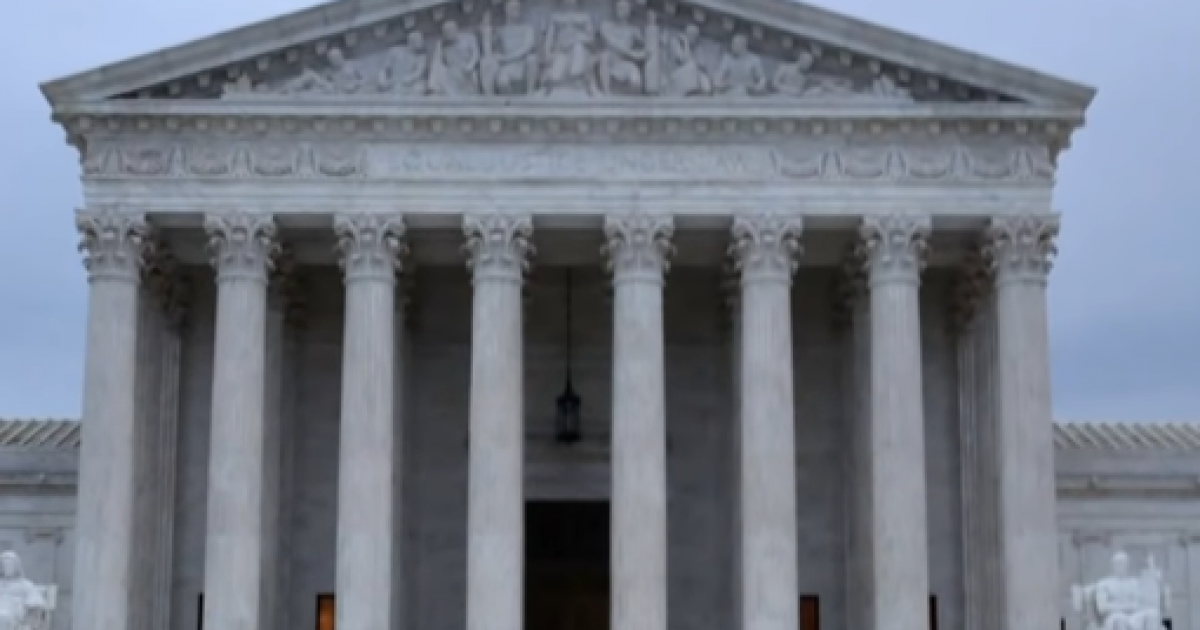
Earlier this month, staff attorneys at the National Right to Work Legal Defense Foundation filed a petition for writ of certiorari at the U.S. Supreme Court for two individuals who work at Connecticut Department of Energy and Environmental Protection. In their class action lawsuit, the workers demanded that Connecticut State Employees Association (CSEA SEIU Local 2001) union bosses refund dues money taken from them and their fellow employees due to this action violating their First Amendment rights.
The employees in question, Kiernan Wholean and James Grillo, made the case that CSEA union bosses and State of Connecticut officials infringed on the First Amendment rights that were upheld in the landmark Foundation-won Janus v. AFSCME Supreme Court decision. In the Janus decision of June 2018, the Court ruled that public sector employees cannot be required to pay dues as a condition of employment. In addition, the Court ruled that dues deductions from any public sector worker’s paycheck can only be carried out with the employee’s affirmative consent and knowing waiver of their right to refuse payment.
Wholean and Grillo are not members of CSEA and they filed their case in 2018 in the U.S. District Court for the District of Connecticut not long before the Supreme Court made its decision on Janus. The State stopped seizing dues from their paychecks at CSEA’s behest after a National Right to Work Foundation attorney sent a letter to the State Comptroller threatening to take legal action against dues seizures from non-members that remained in place after the Janus decision. However, CSEA union bosses still refuse to refund dues that they seized from Wholean, Grillo, and other nonmembers. These dues deductions were in clear violation of the Janus First Amendment standard before the decision was made, even though they were well aware that the employees never consented to pay.
Both the District Court and the Second Circuit Court of Appeals agreed with CSEA lawyers’ so-called “good faith” argument for allowing union bosses to keep the collecting dues in violation of the nonmembers’ constitutional liberties. Wholean and Grillo’s Foundation staff attorneys made the case in their petition to the Supreme Court that such a defense has never existed under Section 1983 of the Civil Rights Act of 1871, the statute which the lawsuit in question invoked. Under section 1983, liability is imposed on individuals who violate the constitutional rights of other individuals while acting “under color of” the current law.
The Supreme Court has never determined if there exists a “good faith” defense under Section 1983. In a similar case the Foundation was involved in, two federal judges at the Third Circuit issued opinions that such a defense does not exist, expressing their disagreements with the other Circuit Court’s decisions. Wholean and Grillo’s petition alludes to this confusion as the principal reason for why the Supreme Court should take up their case. If successful, their lawsuit could result in CSEA refunding potentially millions in forced union dues seized from June 13, 2015, until Connecticut stopped seizing union dues, as stipulated by Connecticut’s statute of limitations.
Wholean and Grillo’s petition is the sixth kind of petition that the Supreme Court is considering in which public employees are looking to obtain refunds for dues seized in violation of the First Amendment prior to the Janus ruling. Foundation staff attorneys have filed four petitions of this sort.
“The lower courts have allowed CSEA union bosses to profit from their past unconstitutional deductions, trampling the Janus rights of Mr. Wholean, Mr. Grillo and their coworkers,” declaredNational Right to Work Foundation President Mark Mix. “With six petitions on this issue now pending with the High Court and more to be filed soon, it is time the Supreme Court hears this issue and ends the denial of justice for tens of thousands of nonmember government employees whose First Amendment rights were violated.”
“Section 1983 of the Civil Rights Act, the federal statute under which all these cases were filed, was specifically intended to allow individuals to remedy the deprivation of their rights when it occurs under color of law,” continued Mix. “Given Section 1983’s intent, it is outrageous that union bosses have thus far been allowed to keep money seized in violation of the First Amendment because it was authorized by then-existing but unconstitutional law. That result is especially specious because, as the Supreme Court recognized in Janus, union bosses have been ‘on notice’ from the Court since 2012 that forcing government employees to pay union fees was likely unconstitutional.”



